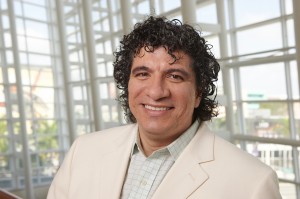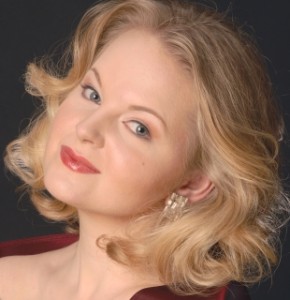
Cleveland Orchestra concert to embrace two lovers, and then everyone else
Tonight, the Cleveland Orchestra opens a series of three concerts that celebrate love between two humans as well as the love of humanity in general.
The love story of composer Peter Lieberson and his wife, mezzo Lorraine Hunt Lieberson, is told in the Neruda Songs, which Lieberson based on five of Chilean poet Pablo Neruda’s 100 Love Sonnets, a searingly beautiful, intimate collection of poems for the woman who would become Neruda’s third wife.
The songs were touched by tragedy, as they were premiered by Lorraine Hunt Lieberson, one of the most beloved singers of her generation, a year before she died in July 2006 of breast cancer at age 52. Her husband was diagnosed shortly thereafter with lymphoma and died of the disease in April 2011, but this cycle remains a monument to their intense relationship, which lasted just nine years.
“The music is so transparent. Lieberson did an incredible job never getting the orchestra in the way of the singer, and more importantly, in the way of the text,” said conductor Giancarlo Guerrero, who will lead the three performances at the Knight Concert Hall. “He manages to color the music without overpowering the text, which is pretty tricky when you have one singer against an entire orchestra.”
Mezzo-soprano Elizabeth DeShong.
The mezzo for the Neruda Songs will be Elizabeth DeShong, whose opera appearances include work at the Glyndebourne Festival and the Lyric Opera of Chicago. The sonnets – Nos. 8, 24, 45, 81 and 92 – are set to a gentle modernist language reminiscent, perhaps, of Alban Berg.
“You can count on the fingers of one hand the ‘fortes’ in this music. Everything is mezzo-forte and below,” Guerrero said. “Everything is meant to be very intimate, very private … It just captivates you in a way that just thinking about it gives you the goosebumps.”
Born in Nicaragua and raised in Costa Rica, Guerrero said Neruda is a poet studied by Latin American students in the same way that Shakespeare is studied by English speakers.
“Neruda is one of those writers that we have to study, that we learn from an early age,” he said. “And the fact that these poems are so approachable and so easy to understand is what makes him very popular.”
Guerrero, who will be working with DeShong for the first time, said conducting this cycle – which Hunt Lieberson recorded with the Boston Symphony, and which the splendid mezzo Kelley O’Connor also has recorded with the Atlanta Symphony – was on his short list of must-do projects as a conductor.
“The fact that finally I’m getting to do them with the Cleveland Orchestra and Elizabeth is almost a dream come true,” he said, adding that he thinks the songs say something profound about the passion that two people can have for one another. “There are no fireworks in this music, from an explosive point of view. The fireworks are all in the heart.”
The Lieberson is on the first half of the concert, and it is followed on the second by one of the most familiar, iconic works in all of Western music: The Symphony No. 9 (in D minor, Op. 125) of Ludwig van Beethoven. DeShong will be joined by soprano Nicole Cabell, tenor Garrett Sorenson and bass Raymond Aceto as soloists in the Ode to Joy finale. The choruses will be the Master Chorale of South Florida and the Tampa Bay Master Chorale.
The Ode to Joy is one of the most familiar melodies in the world, known by people with no other acquaintance with classical music. And the symphony itself is a monument for its idiom and its creator, which makes taking the podium to conduct it somewhat intimidating.
“The Beethoven Nine is a piece that I have done a number of times, but every time I conduct it I always buy a brand-new score, so I can start from scratch,” Guerrero said. “Music is a living organism; I truly believe that music needs to evolve. I am not the same person I was even three years ago, and that is going to affect and influence the music making.”
Orchestral musicians are looking for fresh ideas from the conductor, he said, and with an orchestra with the heft of the Cleveland, “the sky’s the limit.”
“There is no limit to what you can achieve: how soft, how loud, how fast, how slow – anything you want to do,” he said.
Guerrero said one of the reasons people attend live orchestral performances is for the “sense of adventure” they get from hearing a familiar piece tackled by new forces.
“You hope to hear something that will make you appreciate the piece even more. And that’s always in the back of my mind: being honest to the music, and always hoping to find out what the intentions of the composer were at that moment in time,” he said. “And five years from now, even a week now, I’m still allowed to change my mind. But at this time, I have very clear ideas what I want to do with the piece, especially paired next to the ‘Neruda Songs.’”
One of the hazards of conducting the piece, he said, is that you can get carried away in the last movement.
“You have to make sure not to let the adrenalin get the best of you. And that’s the trickiest thing to conduct when you do the Beethoven Nine, I will tell you this from experience,” he said. “How do you conduct a piece that has so many incredible climaxes, and how do you make sure not to give away the store before the piece is over?”
The conductor, he said, “has to be the adult in the room, not the kid running around with a sparkler in his hand,” and that can be difficult when your “personal joy” lets the music get out of hand.
“Imagine you are sitting there in the hall and the excitement is getting to you; imagine what it’s like actually being on the podium,” he said.
The Beethoven Ninth has a special place in cultural history in part because of its astonishing novelty at the time, in part because of the message of embraced humanity in Schiller’s text, and in part because it’s music that manages to make a profound impact every time.
“The music is unbelievably beautiful. Whatever you think about the structure and all the musical stuff that we can debate, the music itself is absolutely, stunningly beautiful,” he said. “Even if you know nothing about harmony, even if you know nothing about how compositions are put together, it still manages to do what you expect music to do, and that is to move you.”
The Cleveland Orchestra performs music of Lieberson and Beethoven tonight, Friday and Saturday at the Knight Concert Hall. All concerts are at 8 p.m. Tickets range from $52-$152; Friday and Saturday night’s concerts are almost sold out. Call 305-949-6722 or visit www.clevelandorchestramiami.com.
Recent Content
-
Artsarticle ·
-
Artsarticle ·
-
Artsarticle ·


